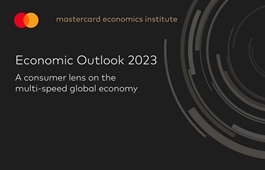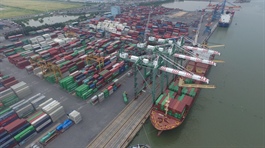Government strives to extend fiscal policy outlined by PSRD
Government strives to extend fiscal policy outlined by PSRD
Amid difficulties forecast to continue undermining the business community, a fiscal policy under Vietnam’s hallmark socioeconomic recovery initiative is expected to be lengthened next year in a bid to fuel enterprises’ performance and achieve desired economic growth.

The Vietnamese government next week is set to issue a major resolution to help implement the socioeconomic development plan for 2023. It is expected to extend the time to craft types of taxes and fees as well as boost public investment under the Programme on Socioeconomic Recovery and Development for 2022-2023 (PSRD).
The reason behind this is that the government is predicting challenges next year in terms of increased risks caused by geographical tensions globally, while enterprises and individuals have been struggling to remain financially resilient.
The Ministry of Finance (MoF) has calculated that all fiscal policies in the PSRD on tax payment extension already fixed by the National Assembly (NA) are worth as much as VND135 trillion ($5.87 billion) – and as of late November, nearly about VND106 trillion ($4.6 billion) was extended, accounting for 78.5 per cent.
Meanwhile, policies on tax exemption and reduction under the PSRD were allowed by the NA to be VND64 trillion ($2.78 billion) – and as of late November, the realised sum sat at VND47.8 trillion ($2.07 billion) or 74.7 per cent.
Thus, more than two-thirds of this fiscal policy under the PSRD has been implemented and the remainder is left for 2023, even though demands of enterprises remains huge now, according to the MoF.
“We are in critical need of support in terms of taxes and fees from the state,” said Nguyen Thi Tuat, director of Hoang Ngoc Trading JSC, a rice trader in Hanoi. “We are now facing with assorted taxes such as business license tax, VAT, corporate income tax, personal income tax, and fees for transportation and commodity storage, among many others. We heard that under the PSRD, enterprises with difficulties can enjoy incentives from such taxes and fees, but that seems to appear on the media, and not yet in reality.”
She elaborated that several times she visited local tax agencies to ask for assistance, but the information required seems overwhelming.
“They asked us to submit so many types of documents including many signatures, especially work confirmation letters of localities where we are working and where our partners in the Mekong Delta provinces are based,” Tuat lamented. “Moreover, if we completed the submission of paper documents, online versions are also requested which have tired us completely. Many of our partners have had to halt performance due to too many difficulties.”
According to the General Statistics Office (GSO), in the first 11 months of this year, the number of enterprises halting performance is 70,200, up 34.8 per cent on-year; nearly 45,300 enterprises await dissolution procedures, up 14.7 per cent on-year; and 16,800 enterprises completed all dissolution procedures, up 13.3 per cent on-year. On average, there were about 12,000 enterprises withdrawing from the market each month.
However, the MoF said that despite continued difficulties, the fiscal policy has been “actively used to remove difficulties for enterprises and create momentum” for production and business activities, thereby generating revenues for state coffers.
MoF Deputy Minister Vo Thanh Hung said, “The implementation of exemption, reduction, and extension of taxes and fees within a limited period of time, and of some state budget sums within 2022, is estimated to be worth of over 2 per cent of GDP.”
According to the GSO, the total state budget in the first 11 months of this year was marked a surplus of $12.26 billion, with expenditure estimated to be over $59 billion – up 3.4 per cent on-year.
Meanwhile, the state budget revenue is estimated to hit $71.26 billion, equal to 116.1 per cent of the year’s estimates and up 17.4 per cent on-year. All kinds of revenues have increased on-year, reflecting recovery in almost all sectors in the economy.
The government has reported to the NA that the total state budget revenue for this year is estimated to be $70.18 billion – exceeding by $8.8 billion or 14.3 per cent as compared to the target set in November 2021 by the NA, and also up 2.9 per cent against the figure realised last year. Total expenditure will likely be $18.32 billion.
“Thanks to the government’s implementation of a number of solutions, this year is seeing the most tax reduction, meaning a decrease of $10.13 billion in the first nine months of this year to implement tax payment extension, postponement, and extension,” said MoF Minister Ho Duc Phoc. “In addition, we have also been implementing budget collection measures such as issuing e-invoices and building a cross-border e-portal. In the first nine months of this year, we have collected $137.7 million from 37 international tech groups.”
He anticipated that next year will “see more difficulties as prices of raw materials have increased strongly, with the price of imported materials rising 10.86 per cent on-year so far this year, while the price of domestic materials has also followed suit, at 6 per cent. Meanwhile, the price of petrol, oil, and gas has also stayed on a high level.”
According to the MoF, the credit room has been tightened and the capital market has also become increasingly difficult.
“Especially, the world’s inflation and global interest rates have soared, having negative impacts on our socioeconomic management in the coming year. While costs continue to rise, demand falls, making it difficult for production and business activities,” Minister Phoc said.


























